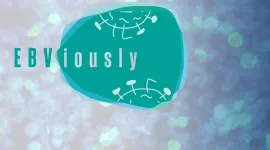(Press-News.org) A new study published in the CABI journal Human-Animal Interactions reveals that young dog owners tend to cope well when their beloved pooch misbehaves.
Past studies suggest that around 90% of dogs display undesired behaviours such as aggression and disobedience, but little is known about the impact of this on young people’s experiences and accompanying emotions.
A team of scientists interviewed young dog owners in Canada, aged 17 to 26 years, to try and determine their experiences with their pets and their coping strategies in response to bad behaviour.
This included barking occasional and persistent barking and, in extreme cases, being aggressive towards other dogs and people.
Renata Roma, lead author and Research Assistant at Brock University, Ontario, Canada, and her colleagues, found that on the whole young people prefer proactive coping styles when dealing with undesired behaviour in their dogs.
They discovered that the severity of their dogs’ behavioural issues was associated with the strength of their emotions in response. For example, more severe behavioural issues seemed to elicit more intense emotions.
The researchers argue that increasing our understanding of coping mechanisms in response to pets’ perceived misbehaviour is important for a number of reasons.
These include exploring how young people handle stressful situations with their dogs might help to clarify if any of the coping styles adopted by young people can decrease the likelihood of experiencing continued stress in their interactions with their dogs.
One respondent accepted their dog’s bad behaviour and tried to live with it while another gave up trying to change their pet after three trainers and a variety of strategies that aimed to solve aggressive behavioural issues.
Renata Roma and colleagues said, “There is a lack of qualitative studies about potential applications of coping styles theories in the context of dog ownership.
“A question that has yet to be answered is whether there is a continuum in people’s coping styles while engaging with humans to whom they are emotionally close and their dogs.
“This study addresses the gap in the literature by examining links and similarities between young people’s coping styles towards their dogs and towards people emotionally close to them.
“Using a qualitative lens, this study also aimed to understand how young people cope with problematic and stressful situations involving interactions with their dogs.”
Renata Roma and her colleagues further found that young people varied in their emotional reactions and perceptions about the severity of their dog’s behavioural issues.
No participants in the study described dog behavioural issues that were displayed towards them, but they did note that their dogs showed severe behavioural issues towards other people or dogs.
While most dog owners indicated moderate discomfort with their dog’s behavioural issues, only one highlighted severe discomfort and in this case the dog exhibited severe behavioural issues including persistent aggressive behaviour.
Renata Roma and her colleagues added, “It is possible that none of the participants in this study revealed severe discomfort with their dog’s behavioural issues because they learned new strategies over time.
“Therefore, future studies could explore whether the amount of time living with a dog influences young people’s ability to handle challenging situations with their dogs.”
Full paper reference
Roma, Renata P. S.; Tardif-Williams, Christine Yvette; Moore, Shannon; Pendry, Patricia, ‘My 'perfect' dog: Undesired dog behaviours and owners' coping styles,’ Human-Animal Interactions, 5 April (2023). DOI: 10.1079/hai.2023.0011
The paper can be read open access from 00:01hrs UK time 5 April, 2023, here: https://www.cabidigitallibrary.org/doi/10.1079/hai.2023.0011
Media enquiries
For more information and an advance copy of the paper contact:
Renata Roma, Research Assistant, Brock University – email: renata.psroma@gmail.com
Wayne Coles, Senior PR Manager, CABI – email: w.coles@cabi.org
About Human—Animal Interactions
Human—Animal Interactions is an open access interdisciplinary journal devoted to the dissemination of research in all fields related to interactions between non-human animals and their human counterparts.
END
Young dog owners tend to cope well when their beloved pooch misbehaves, new study reveals
A new study published in the CABI journal Human-Animal Interactions reveals that young dog owners tend to cope well when their beloved pooch misbehaves.
2023-04-05
ELSE PRESS RELEASES FROM THIS DATE:
Robots predict human intention for faster builds
2023-04-05
Humans have a way of understandings others’ goals, desires and beliefs, a crucial skill that allows us to anticipate people’s actions. Taking bread out of the toaster? You’ll need a plate. Sweeping up leaves? I’ll grab the green trash can.
This skill, often referred to as “theory of mind,” comes easily to us as humans, but is still challenging for robots. But, if robots are to become truly collaborative helpers in manufacturing and in everyday life, they need to learn the same abilities.
In ...
Hot probe tip contributes to making “transformer” semiconductor particles
2023-04-05
How can we make wearable devices like Spiderman’s suit that are thin and soft yet also feature various electrical and optical functionalities? The answer lies in producing novel materials that go far beyond the performance of existing materials and developing technology that enables the precise control of the physical properties of such materials.
Separating transition metal dichalcogenide (TMD) into a single layer just like graphene makes it transform into a thin, two-dimensional (2D) film material that exhibits the characteristics of highly performing semiconductors. By stacking two disparate ...
Series of new studies refute assumptions about link between power and concern about reputation
2023-04-05
Contrary to earlier research findings, people of power - think about politicians, celebrities or bullies in school - turn out to be no less concerned about their reputation, compared to those who have less influence and control within the society.
Previously, it has been assumed that since those who have the upper hand in the society - unlike the ‘powerless’ - are able to get away with commonly unacceptable behaviour (e.g. aggression and exploitation), would care less about any potential damages to their reputation.
However, a recent study by scientists at the University of Kent (United Kingdom) ...
Society matters LIVE: Lab made meat on the menu?
2023-04-04
• Research at Aston University focuses on both creating lab-based meat and its psychological acceptance
• Dr Eirini Theodosiou and Dr Jason Thomas will be speaking at April’s Society matters LIVE event
• Lab made meat on the menu? will take place at Cafe Artum in Hockley Social Club on Thursday 27 April.
Lab made meat will be the topic of the latest Society matters LIVE event from Aston University at Café Artum at Birmingham’s Hockley ...
Students use machine learning in lesson designed to reveal issues, promise of A.I.
2023-04-04
In a new study, North Carolina State University researchers had 28 high school students create their own machine-learning artificial intelligence (AI) models for analyzing data. The goals of the project were to help students explore the challenges, limitations and promise of AI, and to ensure a future workforce is prepared to make use of AI tools.
The study was conducted in conjunction with a high school journalism class in the Northeast. Since then, researchers have expanded the program to high school classrooms in multiple states, including North Carolina. ...
DZIF-project-derived start-up “EBViously“ announces first details of its EBV vaccine candidate
2023-04-04
EBViously, a spin-off from Helmholtz Munich (HMGU), is led by world-leading experts in Epstein-Barr virus biology, genetics, and immunity and was founded to develop a safe and highly effective preventive vaccine against a range of diseases caused by Epstein-Barr virus (EBV), including infectious mononucleosis, immune disorders, multiple sclerosis, and various cancers. The spin-off is based on a project of HMGU supported by the German Center for Infection Research (DZIF). The project leading to the spin-off was co-funded by the DZIF to enable GMP manufacturing ...
Preventing urban flooding in the face of climate change
2023-04-04
Planners have come up with many innovative ways to prevent flooding caused by heavy downpours — from planting rain gardens to installing green roofs.
But in many cases, nothing works quite as well as a simple hole in the ground — a detention basin.
That’s the finding of an analysis by University of Cincinnati geography students in a research collaboration with the Hamilton County Conservation District.
Lead author and UC College of Arts and Sciences doctoral student Man Qi said cities are developing new ways to trap rainwater and direct it where it’s most wanted, especially during droughts. They call these low-impact development practices, which ...
Genome-wide CRISPR screens identify PARP inhibitor sensitivity and resistance in prostate cancer
2023-04-04
Prostate cancer tumors harboring BRCA1/2 mutations are exceptionally sensitive to PARP inhibitors, while genomic alterations in other DNA damage response (DDR) genes are less responsive. To identify previously unknown genes whose loss has a profound impact on PARP inhibitor response, researchers from Dana-Farber Brigham Cancer Center led a multinational effort to perform genome-wide CRISPR-Cas9 knockout screens. The study goal was to inform the use of PARP inhibitors beyond BRCA1/2-deficient tumors and support reevaluation ...
Aston University biomass expert calls for more exploration of power bioenergy with carbon capture and storage
2023-04-04
Professor Patricia Thornley welcomes latest UK energy security plans
But calls for more exploration of bioenergy with carbon capture and storage
She believes plans shouldn’t concentrate solely on energy such as wind and solar power.
A leading biomass scientist at Aston University has welcomed the government’s announcement to ensure UK energy is more secure.
However, Professor Patricia Thornley, director of Aston University’s Energy and Bioproducts Research Institute (EBRI), believes the government ...
DMI allows magnon-magnon coupling in hybrid perovskites
2023-04-04
An international group of researchers has created a mixed magnon state in an organic hybrid perovskite material by utilizing the Dzyaloshinskii–Moriya-Interaction (DMI). The resulting material has potential for processing and storing quantum computing information. The work also expands the number of potential materials that can be used to create hybrid magnonic systems.
In magnetic materials, quasi-particles called magnons direct the electron spin within the material. There are two types of magnons – optical and acoustic – which refer to the direction of their spin.
“Both optical and acoustic magnons propagate ...
LAST 30 PRESS RELEASES:
Brainwaves of mothers and children synchronize when playing together – even in an acquired language
A holiday to better recovery
Cal Poly’s fifth Climate Solutions Now conference to take place Feb. 23-27
Mask-wearing during COVID-19 linked to reduced air pollution–triggered heart attack risk in Japan
Achieving cross-coupling reactions of fatty amide reduction radicals via iridium-photorelay catalysis and other strategies
Shorter may be sweeter: Study finds 15-second health ads can curb junk food cravings
Family relationships identified in Stone Age graves on Gotland
Effectiveness of exercise to ease osteoarthritis symptoms likely minimal and transient
Cost of copper must rise double to meet basic copper needs
A gel for wounds that won’t heal
Iron, carbon, and the art of toxic cleanup
Organic soil amendments work together to help sandy soils hold water longer, study finds
Hidden carbon in mangrove soils may play a larger role in climate regulation than previously thought
Weight-loss wonder pills prompt scrutiny of key ingredient
Nonprofit leader Diane Dodge to receive 2026 Penn Nursing Renfield Foundation Award for Global Women’s Health
Maternal smoking during pregnancy may be linked to higher blood pressure in children, NIH study finds
New Lund model aims to shorten the path to life-saving cell and gene therapies
Researchers create ultra-stretchable, liquid-repellent materials via laser ablation
Combining AI with OCT shows potential for detecting lipid-rich plaques in coronary arteries
SeaCast revolutionizes Mediterranean Sea forecasting with AI-powered speed and accuracy
JMIR Publications’ JMIR Bioinformatics and Biotechnology invites submissions on Bridging Data, AI, and Innovation to Transform Health
Honey bees navigate more precisely than previously thought
Air pollution may directly contribute to Alzheimer’s disease
Study finds early imaging after pediatric UTIs may do more harm than good
UC San Diego Health joins national research for maternal-fetal care
New biomarker predicts chemotherapy response in triple-negative breast cancer
Treatment algorithms featured in Brain Trauma Foundation’s update of guidelines for care of patients with penetrating traumatic brain injury
Over 40% of musicians experience tinnitus; hearing loss and hyperacusis also significantly elevated
Artificial intelligence predicts colorectal cancer risk in ulcerative colitis patients
Mayo Clinic installs first magnetic nanoparticle hyperthermia system for cancer research in the US
[Press-News.org] Young dog owners tend to cope well when their beloved pooch misbehaves, new study revealsA new study published in the CABI journal Human-Animal Interactions reveals that young dog owners tend to cope well when their beloved pooch misbehaves.





